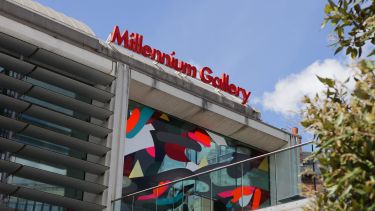- Research has found that Sheffield has missed out on more than 1.25 million visitors to its cultural venues, events and festivals due to the Covid-19 pandemic, equating to approximately £11million of lost income for the city.
- Surveys were undertaken by the University of Sheffield with creative industries across Sheffield, Rotherham, Doncaster and Barnsley
- Data collected has been used as the evidence base for two separate reports submitted to the Department for Digital, Culture, Media and Sport (DCMS)
Providing the evidence of how Covid-19 has affected the region’s cultural sector has been a vital role which the University of Sheffield has undertaken as part of its civic role in the city and region due to the immediate urgent requirement for the data collection.
Two reports have recently been submitted to the using data which had been collected, aggregated and analysed by the University of Sheffield. The first report - specific to the effect on the city of Sheffield - was undertaken with support from Sheffield City Council and found that the lockdown had meant that the city had lost more than 1.25 million visitors, who could have brought approximately £11 million to the city in ticket sales, retail sales, sponsorship and donations. The second report covered the impact on the wider region for a separate submission by the Sheffield City Region Mayor, Dan Jarvis. This report looked at the effect on cultural venues, events and festivals in Rotherham, Barnsley and Doncaster. Both reports will be considered by the DCMS’s Select Committee in response to the call for evidence of the impact of Covid-19.
“What Covid-19 has done is presented us with many new challenges and how we deliver events, manage our venues and look after our visitors will all have to change. We also need to prepare ourselves as a city for the possibility of this situation happening again - the recovery strategy should include looking to digital platforms and how income for the city can be generated through different ways of delivering events.”
Professor Vanessa Toulmin, Director of City and Culture
Led by Director of City and Culture, Professor Vanessa Toulmin who wrote the Sheffield report with Research and Evaluation Manager, Fran Marshall, the survey has highlighted the significance of the cultural sector in both Sheffield and the region and how creative industries are essential to local and national recovery plans. Professor Toulmin says: “It was devastating to see the stark reality about the impact on our cultural sector and specifically on the city of Sheffield. But I do know that Sheffield is a resilient city and its people will want to support their local museums, galleries and venues by visiting again when they open.
A similar situation is evident in the wider region’s cultural sector and Dan Jarvis, the Mayor of Sheffield City Region told that he was ‘pressing’ the Government and Arts Council England to ‘fill the financial gap’ faced by local museums, theatres, music venues and festivals. He also said that ‘Art, culture and music can be a vehicle to recovery and renewal, contributing to healthy and sustainable communities and vibrant town centres.’
This survey comes a few months after it was that Sheffield receives less than £10 per head in arts funding with other Northern cities receiving up to five times more. In 2018/19, Arts Council England spent £6.40 per head of population on organisations and projects as well as distributing £3.10 per person in National Lottery funding in Sheffield.
The Sheffield Culture Collective - formed in September 2019 as a partnership between the public, private and voluntary sector including the University of Sheffield - is working towards addressing this funding gap and developing a ‘comprehensive and compelling vision for culture’ for the city.

